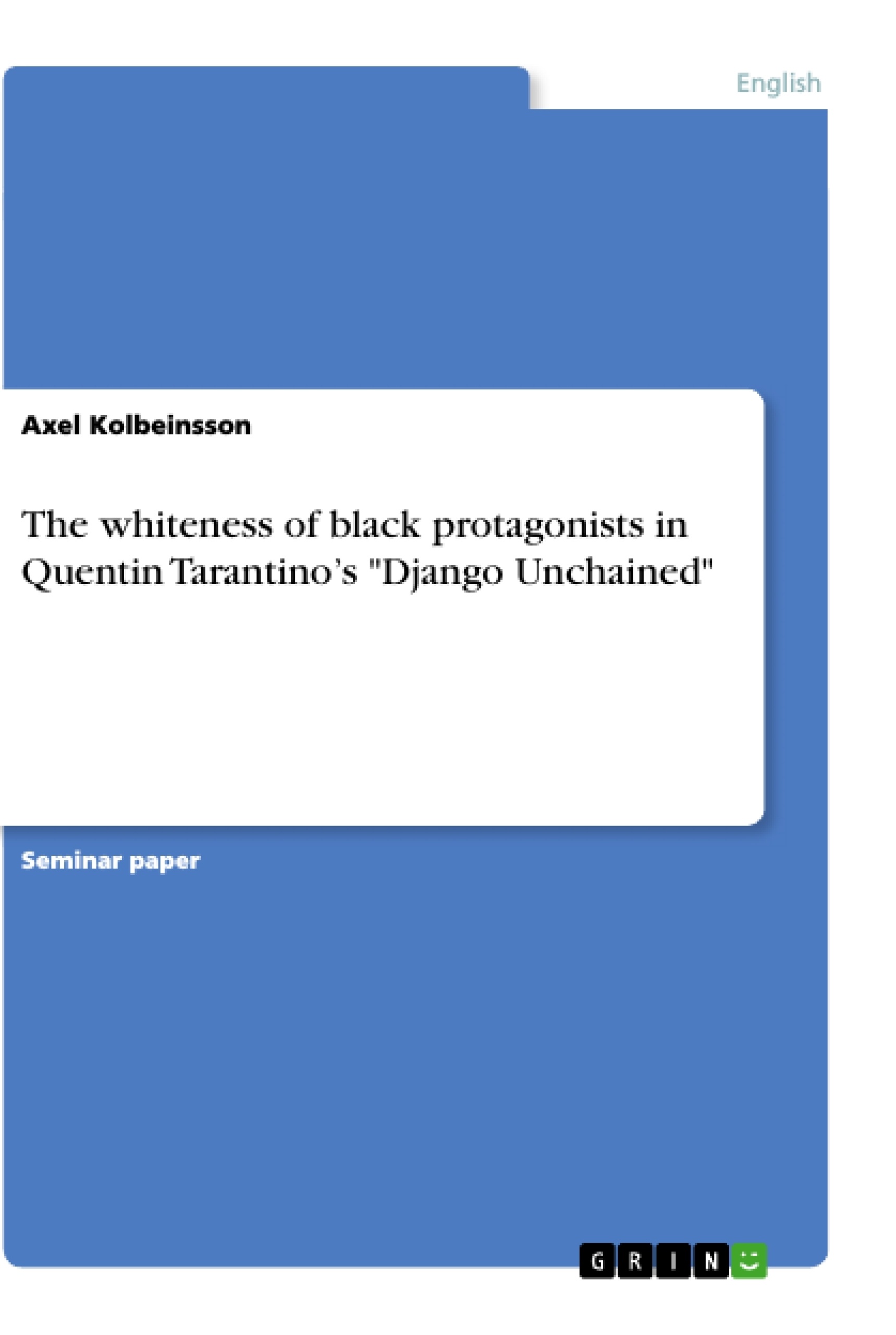White privilege was and still is an issue in past and present societies. This paper aims to determine how white privilege and power resulting from it are granted to a black protagonist in a fictional historical setting. In order to shed light on this matter, John French and Bertram Raven's (1959) theory of five (six) `Bases of Social Power' as well as the findings from the analysis of the history of whiteness were applied to Quentin Tarantino's (2012) movie "Django Unchained". Several scenes showing power relationships between the main character Django and others were analysed.
Some forms of power, including legitimate, expert, informational and coercive power regarding the theory, could be detected in various relations with Django throughout the movie. Furthermore, it was found out that forms of power do not appear on their own and that, despite the fact that both parties hold at least one form of power, one side trumps the other. Although Django is granted power through white privilege, he is still not considered equal and owes his status to his expertise or knowledge by superior white men.
Inhaltsverzeichnis (Table of Contents)
- Theoretical Background
- Definition of Whiteness
- History of whiteness
- Whiteness in black protagonists
- French & Raven - The bases of social power
Zielsetzung und Themenschwerpunkte (Objectives and Key Themes)
This term paper examines how white privilege and power are bestowed upon a black protagonist in a fictional historical setting. It explores the reasons for the main character Django's grant of white privilege in Quentin Tarantino's movie Django Unchained, specifically within the context of 19th-century Southern United States. The paper aims to shed light on the forms of white privilege available to black protagonists in this setting.
- White privilege and power dynamics in a historical context.
- The role of white privilege in granting power to black protagonists.
- The theoretical framework of "The bases of social power" and its application to the film.
- Analysis of power relationships between Django and other characters in the movie.
- The historical development and social construction of whiteness and its impact on power structures.
Zusammenfassung der Kapitel (Chapter Summaries)
- Theoretical Background: This chapter introduces the concept of whiteness and its ambiguity, defining it both as a physical characteristic and as a form of privilege. It explores the historical construction of whiteness as a socially constructed ideology designed to gain control over others.
- History of whiteness: This section delves into the historical development of the term "slave" and its evolution from the Slavic population to a term associated with African Americans. It examines the role of wealth and power in perpetuating racial discrimination and how the Irish, despite being oppressed, ultimately sided with white tormentors rather than standing with African Americans.
- Whiteness in black protagonists: This chapter explores the reasons for Django and Stephen being granted white privileges by analyzing French & Raven's five bases of social power. The chapter then delves into the definition of each type of power, including legitimate, reward, expert, referent, coercive, and informational power, examining their roles in granting power to individuals.
Schlüsselwörter (Keywords)
This term paper focuses on the intersection of power, privilege, and race, specifically investigating white privilege in the context of slavery and historical power dynamics. The analysis draws from theories of social power, the history of whiteness, and the portrayal of black protagonists in Quentin Tarantino's film Django Unchained. Key terms include: power, slavery, white privilege, Django, African American, social power, legitimate power, reward power, expert power, referent power, coercive power, informational power, and the history of whiteness.
Frequently Asked Questions
How is white privilege portrayed in "Django Unchained"?
The film explores how a black protagonist can be granted forms of power and privilege usually reserved for white people, though often under the supervision of white men.
What are the 'Bases of Social Power' used in the analysis?
The analysis uses French & Raven’s theory, which includes legitimate, expert, informational, coercive, reward, and referent power.
Is Django considered equal to white characters in the movie?
No, despite holding power through expertise or knowledge, he is still not viewed as an equal in the 19th-century Southern social structure.
What is the "history of whiteness"?
It refers to the social construction of whiteness as an ideology used to maintain control and wealth over other groups throughout history.
What role does "Expert Power" play for the protagonist?
Django's status and the privileges he receives are largely based on his specific skills and knowledge, which make him valuable to his white associates.
- Quote paper
- Axel Kolbeinsson (Author), 2021, The whiteness of black protagonists in Quentin Tarantino’s "Django Unchained", Munich, GRIN Verlag, https://www.grin.com/document/1191939



